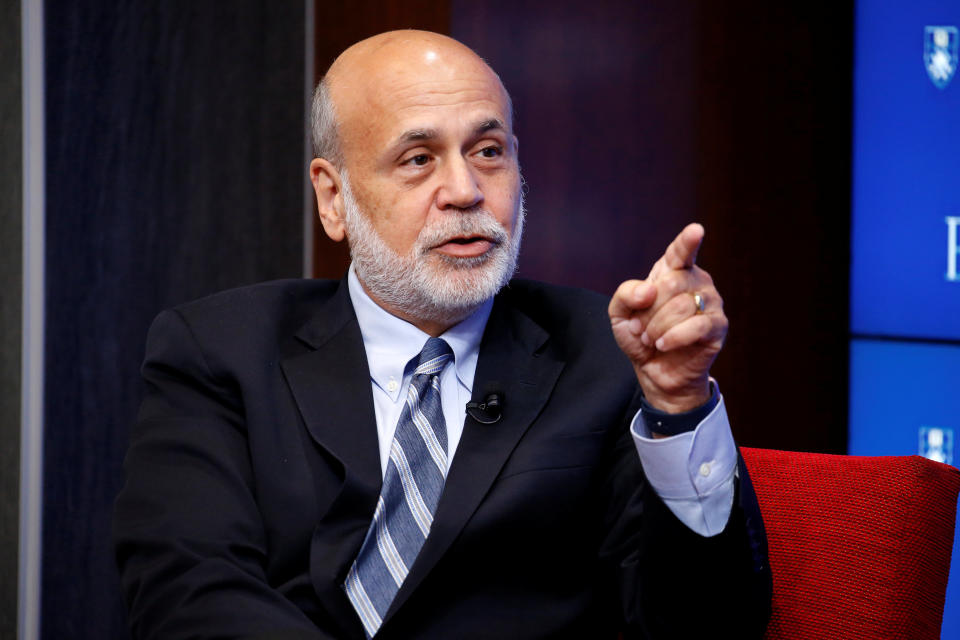Bernanke: Fed needs greater 'lender of last resort' authority
With the financial crisis now 10 years in the rearview mirror, former Federal Reserve Chairman Ben Bernanke says the U.S. central bank may be ill-equipped to handle the next financial crisis.
Bernanke said at a conference at New York University on Friday that the Fed needs to have expanded powers to lend to institutions that are not commercial banks, which is the only industry that the central bank can offer emergency funds to as a “lender of last resort.”
That tool, Bernanke said, needs to be extended to cover shadow banks like broker-dealers and other non-bank institutions that could prove systemic in the next financial downturn.
“I fear they are not fully adequate,” Bernanke said of the Fed’s regulatory powers.
Former Fed Chair Janet Yellen has echoed similar concerns, worrying that leveraged lending existing outside of the regulated banking space could be an issue.
‘Politics was a much bigger part of it’
Speaking alongside former European Central Bank President Jean-Claude Trichet and former Bank of England Governor Mervyn King, Bernanke said other central banks have more flexibility in terms of what companies they can lend to, whereas the U.S. needed to get Congressional action to lend to nonbank companies through the Troubled Asset Relief Program. King briefly joked that the Bank of England could lend to the Aston Villa Football Club if it wanted to.

After the crisis, Congress did give the regulators the power to oversee large non-bank firms identified as “systemically-important financial institutions,” but the four companies originally assigned the label — AIG, MetLife (MET), GE Capital, and Prudential (PRU) — no longer face those designations.
Bernanke lamented that even offering emergency funding to commercial banks carries political “stigma” that makes it difficult to take action without harsh public criticism.
“I think communications and politics was a much bigger part of it than I initially understood,” Bernanke said.
Bernanke said he would advocate for extending the definition of a bank to allow regulators to keep an eye on companies that are not strictly commercial banks. He also said he could see a need for the Federal Deposit Insurance Corporation, which insures bank deposits and oversees the liquidation of distressed institutions, to have jurisdiction over creditors that rely on short-term funding.
But Bernanke noted that financial conditions are more stable than they were 10 years ago, saying that he saw lower reliance on short-term funding, more capital, and less leverage within the financial system.
Asked if he thinks the Fed solved the issue of “too big to fail” firms, Bernanke said he is encouraged by post-crisis reforms that gave the regulators the ability to wind down a large bank in distress, a power known as the “orderly liquidation authority.”
Bernanke said he disagrees with the notion that banks should be allowed to fall to complete bankruptcy, saying that the risks to the economy would be too large to not have some kind of safety net — like the orderly liquidation authority — in place.
“If you can’t allow a large firm to fail,” he said, “then you’re in the situation where in a crisis every large firm is a time bomb.”
Brian Cheung is a reporter covering the banking industry and the intersection of finance and policy for Yahoo Finance. You can follow him on Twitter @bcheungz.
Read more:
Trump target Maxine Waters is poised to take a lead on banking regulation
Midterms unlikely to halt Trump administration’s regulatory rollbacks

